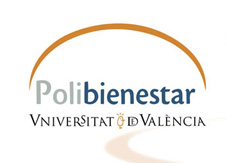Accessible Tourism Award for Polibienestar Research Institute at University of Valencia, Spain
Share on social media
The University of Antonio de Nebrija and Fundación ACS have awarded Polibienestar Research Institute with the prize 'Turismo Accesible' (Accessible Tourism) for research on the health benefits of tourism for elderly people.
 The University of Antonio de Nebrija and Fundación ACS have awarded Polibienestar Research Institute with the prize 'Turismo Accesible' (Accessible Tourism).
The University of Antonio de Nebrija and Fundación ACS have awarded Polibienestar Research Institute with the prize 'Turismo Accesible' (Accessible Tourism).
The research awarded, carried out by Mireia Ferri, Stephanie Carretero and Jorge Garcés, analyses the tourism impact on the elderly people's functional health and the potential use of social tourism as social policy for promoting the active and healthy ageing.
These objectives follow those of the European Strategy 2020 which, through the Innovation Partnership on Healthy and Active Ageing and the European Year of Active Ageing and Solidarity between Generations (2012), aim to improve people's life while ageing, as well as the sustainability of healthcare and social systems. These objectives also intend to raise people's consciousness about the ageing challenges and the best ways of tackle it.
For these purposes, Polibienestar has developed this first pilot research with the main aim to study the impact of the tourism on the functional health of older adults. The results show a significant relationship between tourism and a better self-perceived health, autonomy to carry out the Instrumental Activities of Daily Living (IADL) and less use of social and health services. The implications of these positive connections could affect the social and health systems in the way that people who feel better would use both care services to a lesser extent. Consequently, governments could see reduced their spending in these areas. So, Accessible Social Tourism could be used as social and health policy in order to provide a better quality of life for elderly and to reduce their associated costs for governments.
Research evidence of better health among elderly who travel
Concretely, the results reveal that elderly people who travelled during 2010 have better physical health related with their self-care, their capacity of movement (to walk, to climb floors, to bend and to knee and to take and carry and transport weight) and develop vigorous and moderate activities (physical function); and a better mental health related with energy and vitality feelings against the tiredness and exhaustion feelings (vitality) than elderly people who did not travel during that year. Moreover, elderly people who travelled present a similar health of the general population while elderly people who did not travel have lower physical function and vitality that the general population.
Regarding the capacity to carry out the IADL, the results display that elderly women who travelled during 2010 are more independent to develop the IADL than elderly women who did not travel in 2010.
Moreover, the research analysed some tourism habits of elderly people. In this sense, the research show that: the hotel is their favourite accommodation, they contacted mainly with travel agencies and leisure centres addresses to them to organise their journeys, most of them use package tours and prefer travel during autumn and springtime due to the weather.
The research is integrated in the Polibienestar's research line of Accessible Social Tourism in which Polibienestar works since 2005. This research line, led by Stephanie Carretero and Jorge Garcés, aims to boost strategies to develop and promote social tourism due to the increase in dependent and disabled persons in Europe.
Polibienestar has lead and participated in several regional, national and European projects on this research line. In 2007, Polibienestar founded the Red Tecnológica de Turismo Accesible financed by the Spanish Ministry of Education and Science, which is nowadays part of the Plataforma Tecnológica de Turismo Thinktur.
This award consolidates Polibienestar's work as a research public institute known internationally and specialized in research, innovation and social technology, technical consultancy and training on social policies.
Find more information at these websites
Polibienestar Institute
European Year of Active Ageing and Solidarity between Generations, 2012
